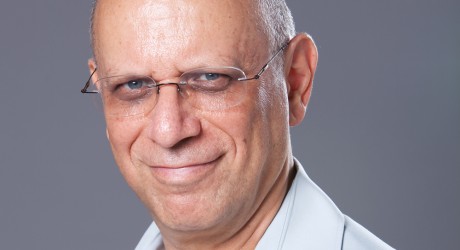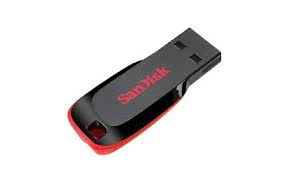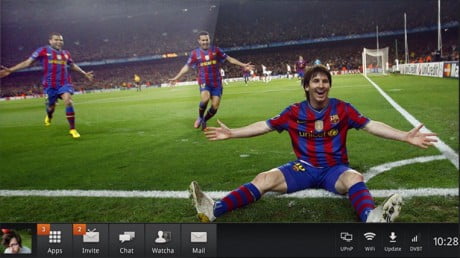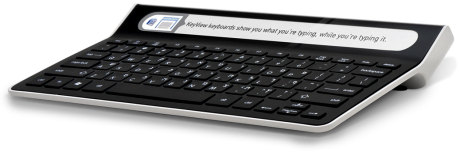
Dov Moran is the founder of M-Systems, the company that created the USB Flash Drive (DiskOnKey) and went on to sell it for $1.6 billion to SanDisk; he created modu, which made modular cellular devices a reality and sold it to Google for $4.9 million; and, most recently, Comigo, to develop an Android-based TV platform and Smartype, which developed a smart keyboard.
Will you offer us a hand? Every gift, regardless of size, fuels our future.
Your critical contribution enables us to maintain our independence from shareholders or wealthy owners, allowing us to keep up reporting without bias. It means we can continue to make Jewish Business News available to everyone.
You can support us for as little as $1 via PayPal at office@jewishbusinessnews.com.
Thank you.
Dov Moran sold M-Systems and its USB Flash Drive to SanDisk for $1.6 billion.
Dov Moran is a fountain of creative output who, according to his workmates, doesn’t sleep (“This is incorrect” he states “I do sleep sometimes…”) and who devotedly heeds his family’s advice (Answering the question of whether he is involved in charitable donations, he says: “My wife gave me a very good lesson: if you talk about your charity work, it isn’t charity anymore. It’s PR.”)
Still, during an interview with NoCamels, this tireless tech giant good-humoredly shared with us his clumsy beginnings. He indeed remembered himself, “at the age of ten or so, buying electronic components and digital watch parts” from a supplier published on the last page of MAD magazine. “But, ” he blushingly adds, “I cannot state that I overly succeeded doing something with those parts…”
The inner inventor waiting to pounce
As his childhood memories prove, the inventive spirit of the entrepreneur lay inside little Dov Moran and all it lacked was a means of revealing itself. And so it did, for a twist of fate awaited this child who filled in his home address in the blank squares of MAD magazine’s purchase forms.
“I was sent when I was 16 to an annual course in computers held in Tel-Aviv University.” He reminds us that “these were the days” in which “to write a program you needed to mark cards dedicated to that with a pen.” After three months of strenuous efforts to see eye-to-eye with this primitive system, Moran wrote his first program.
But this self-described “futile creation” was but the first toddles of a programmer learning the ropes. Moran cruised through his computer courses until obtaining a Bachelor of Science at the Technion, Israel’s Institute of Technology. It was during these days that Moran decided “[he was] going to open a company” and “the feeling strengthened when [he later] served in the Navy.”
Moran’s startup Comigo created a smart TV with a comprehensive multi-screen solution with interactive personal and social networking capabilities.
“My dreams were to create company that would succeed in generating revenues of $1 million. I didn’t think about a billion!” he says M-Systems, his first company. But Moran, an unsatisfied personality by nature, didn’t have enough: “When we passed that, the desire came for a company that with annual sales of $10 million. We then strived for a company with annual sales of $100 million and then the $1 billion just happened…”
In 1995, M-Systems created the world’s first flash drive (DiskOnChip) and, in 1999, the first USB flash drive (DiskOnKey). This invention, which revolutionized the world of technology and clicked all computer devices together, heaved the company’s value over the billion dollar mark and was sold in 2006 to SanDisk for $1.6 billion. “It just happened, ” says Moran.
When the going gets tough, the tough gets going
When Moran began his career, two concepts we can all come across nowadays by perusing any business publication were not yet at home in the Israeli lexicon: he claims the word “high-tech” wasn’t really common and no one knew the meaning of “raising money”. “Raising money?” he mimics the engineers of old “You can raise flowers, but money?”
The idea back then, in the entrepreneur’s own words, was: “You worked hard, made money and used some of it for your own development.” After you had built some products, “you sold them and gathered more money for more developments. And so on…”
But Moran isn’t overly optimistic about Israel’s high-tech scene. “I saw the market bloom to the sky (the happy days of 2000) and crash.” He adds: “These days, we are not in a good part of the cycle in the Israeli high-tech.”
Moran lists the ingredients necessary for a country’s high-tech to thrive: “Good education, good support, no bureaucracy…” and he diagnoses Israel’s lack of some of these developmental vitamins as the cause of its wavering sector: “Unfortunately, we didn’t progress in these issues as much as the rest of countries worldwide.”
A lesson for VCs and high-tech
Dov Moran’s startup Keyview created the Smartype, a smart keyboard with a built-in display screen
Despite opining that “the high-tech here [in Israel] isn’t at its best”, he reckons it will definitely improve. “We have a strong DNA of survival. When it’s tough, you get out of it stronger and better.” Moran has faith in the Israeli startups nation’s future growth and success, he says.
He is also critical of some of the habits of local venture capitalists: “I believe that many Israeli VCs made a mistake by pushing companies to exit or by not finding the appropriate ways to keep the entrepreneurs safe enough.” He believes this insecurity is what leads many entrepreneurs to abandon their companies. He explains that “funding medium companies was always an issue here, so the natural exit was IPO [Initial Public Offering].” And when an IPO wasn’t possible, he goes on to tell, the only viable exit was “to be sold to a foreign company.”
But, he adds, “Here we do not need Facebook or Microsoft. Give me a few companies with market cap of $2-5B “. Nevertheless, he says “I would die to see such an Israeli company…”
Like pioneer, like entrepreneur
When counseling young entrepreneurs anxious to launch their own startups, Moran, who obviously loves a good metaphor, tells these inventors-to-be that before “jumping into this pool that they need to check a) if there is water in the pool b) that they know how to swim and c) are ready for the very, very long way they will have to traverse until they see some sort of success.”
Moran sees perfect sense in Israel becoming what is now known as the “Startup Nation” and he traces the reason for this back to the very origins of the State: “We are the ‘Startup Nation’ just as we, our nation, is a sort of startup.” He proudly jests about Israel’s entrepreneurial mien: “[We have] lots of excitement on the one side and a big balagan (Hebrew for ‘mess’) on the other.”
“But, seriously, ” he gets back on track “Israel does have a very high percentage of entrepreneurs.” He outlines life in the embryonic Land of Israel as “life with no assurance, a readiness to try new things, no stability, taking risks…” He believes that adapting to such a barren, unfriendly environment instilled in the pioneers a sense of both survival and creativity, “while in many cases the ones who were not ready to take the risks and acted as was expected of them did not survive…”
When asked what the future might hold for Israel and its high-tech industry, he exclaims: “Wow! I wish I knew…” Within the tides of change, he hopes to see “a new leadership that will strive for better education, more progress and peace with our neighbors” for this “would really influence the startup scene.”
Never satisfied, ever forward
Back to him, then. When asked if after his exit to SanDisk, he had ever considered retiring, sitting back and enjoying life, Moran startles. “Retire? What???” then proceeds to justify his surprise: “My father died two years ago. He was over ninety and worked until his last days at SanDisk. As long as I will be able to contribute – this is what I will do.” Upon further reflection, he adds: “I’m not sure I’ll run a company at ninety but I definitely hope to be able to be creative, to assist young entrepreneurs, to establish new initiatives.”
And speaking of the future, Moran feels his most valuable contribution towards it hasn’t been the DiskOnKey or any of his other entrepreneurial successes, but a very different sort of creation: “I have four amazing kids. Each one of them is very, very different from the others and yet, while I look at them, I recognize in each one something from myself and my values.”
The proud father confesses: “I love them all and am much more proud of them than of any award I ever got, the Doctor of Honor I received from the Moscow Technical University, the DiskOnKey patent and any other thing I have done until now.” In his four mini-Morans, the entrepreneur is proud to identify a legacy of values: “I believe that everybody should strive for strong values. Good kids are part of the values we bring [into the world].”
***
NoCamels.com – Israeli Innovation News






